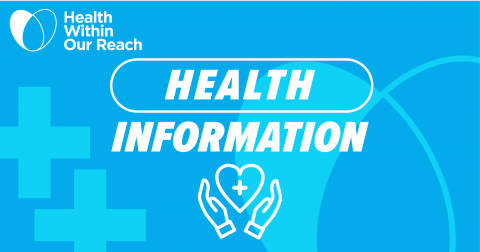March 15, 2023
On the Third Anniversary of the COVID-19 Emergency Declarations in the United States, What’s in Store for Migrant Workers?

On March 13, 2020, the United States government declared a national emergency due to COVID-19. Three years later, the virus continues to affect the health and well-being of millions of people across the country, especially migrant and immigrant workers employed in “essential” industries. However, the U.S. government recently announced that the emergency COVID-19 declarations will expire on May 11, 2023. In this blog, we explore what the declarations, and their expiration, mean for migrant workers. We also recap what everyone can do to prepare for the coming changes.
What are the emergency declarations for COVID-19?
SARS-COV-2, the virus that causes COVID-19, was already raising alarm bells around the world since the end of 2019 for having caused illness and death in several countries. On March 13, 2020 the U.S. federal government declared a national emergency and began to implement a series of public policies to control COVID-19. Collectively, these extraordinary public policies are known as “the emergency declarations.”
How have the COVID-19 emergency declarations impacted migrant workers?
Throughout the pandemic, accessing medical services and supplies has been a challenge for migrants and immigrants, who often have little or no health insurance, among other barriers. The COVID-19 emergency declarations facilitated access to certain services and tools to combat the spread and effects of the virus for everyone in the United States, regardless of their immigration status or health insurance coverage. Among other measures, the statements helped leverage government funds to pay for the development and provision of tests, vaccines, and some treatments against COVID-19, and make them free to the general public. As a result, millions of essential immigrant and migrant workers were prioritized to receive the first vaccines against COVID-19, for example, in late 2020 and early 2021. The declarations also expedited access to health services for disadvantaged communities through the modification of some health insurance programs, financing community outreach programs, and hiring of more medical personnel, among other measures.
What impact will the expiration of the COVID-19 emergency declarations have in the months ahead?
On May 11, 2023, several extraordinary policies established in the context of the pandemic will expire. This news has raised concern, particularly among people who throughout the pandemic have been able to access free COVID-19 tests, treatments and vaccines without health insurance.
While May 11 represents a change in public policy, the virus that causes COVID-19 is still with us. For one thing, essential workers will continue to be disproportionately impacted by COVID-19, particularly if they have little or no health insurance. On the other hand, the general public - regardless of immigration status - will still be able to access free COVID-19 tests, vaccines, and treatments for a few months until government-purchased supplies run out. Some people may enjoy greater health benefits and services depending on the state in which they live or their access to health insurance. Although the U.S. federal government has expressed its intention to continue evaluating options to continue supporting people without medical coverage, to date, it has not provided more information.
In general, migrant workers with little or no health coverage won’t feel the effects of the expiration of emergency declarations immediately after May 11. However, there is uncertainty about the availability and potential cost of COVID-19 tests, vaccines, and treatments in the long term. The only thing we know for sure is that COVID-19 will be a part of everyone's lives - in the United States and globally - for a long time to come.
What can migrant workers do today to prepare for an uncertain future?
COVID-19 has left many lessons learned. Now, it is more important than ever to put this knowledge into action. Here we review 4 key steps to prepare you and your community:
Get up-to-date on your COVID-19 vaccines while they're still free (and help your loved ones, too): You’re up-to-date when you have completed a COVID-19 vaccine primary series and got the most recent booster dose recommended for you by CDC. Find out if you and your friends and family are eligible for a new booster dose here or call One Voice for Health, +1 737-414-5121.
Continue taking preventive measures at work and in your community: We already have a lot of evidence that quality masks, ventilation, and good hygiene are effective in reducing the risks of suffering from COVID-19 infections. There is no reason to look back now: these simple measures can prevent infections, minimize the effects of long-term COVID-19, and save lives.
Get tested: COVID-19 PCR and antigen tests are available at no cost to the general public, including the uninsured, at more than 15,000 sites across the United States. Find free COVID-19 tests here.
Know your labor rights: Chat with Sol to resolve your doubts about your rights to miss work due to illness, to work under safe and healthy conditions, and retaliation protections, among others. Then, work with your co-workers to identify opportunities to improve working conditions and support each other.
Still have concerns? Join us on March 23 for a Facebook Live to discuss more about the future of migrant workers beyond the expiration of the U.S. COVID-19 emergency declarations.
